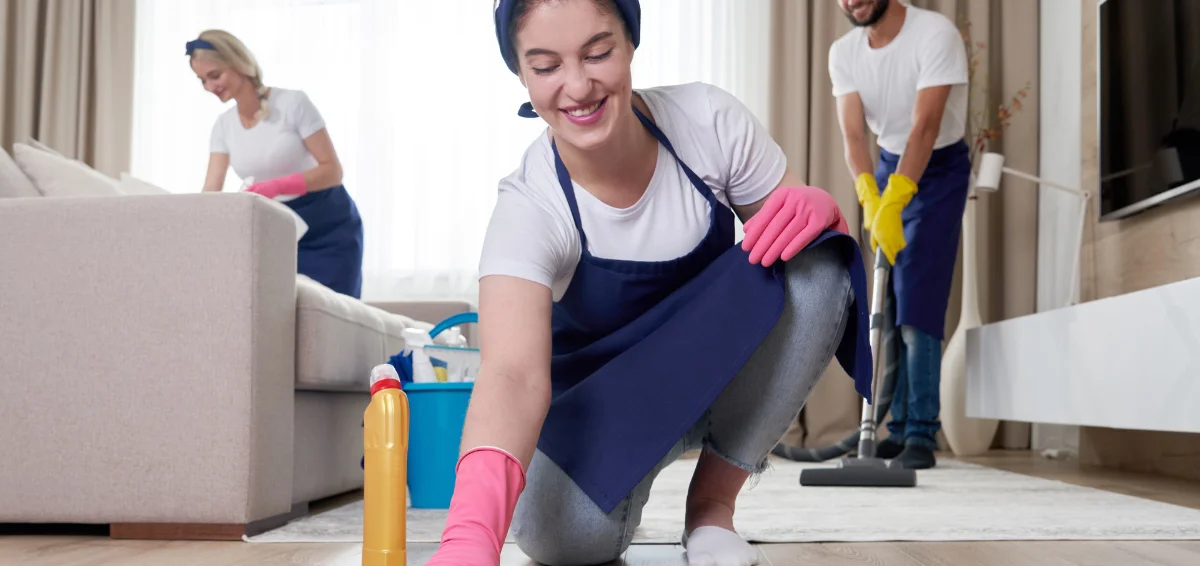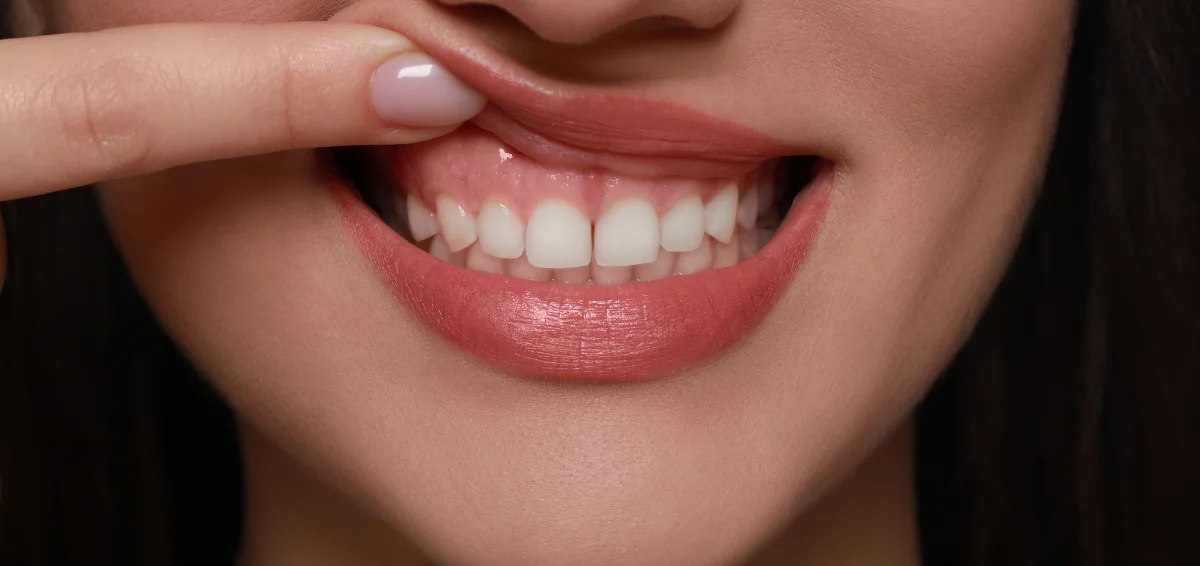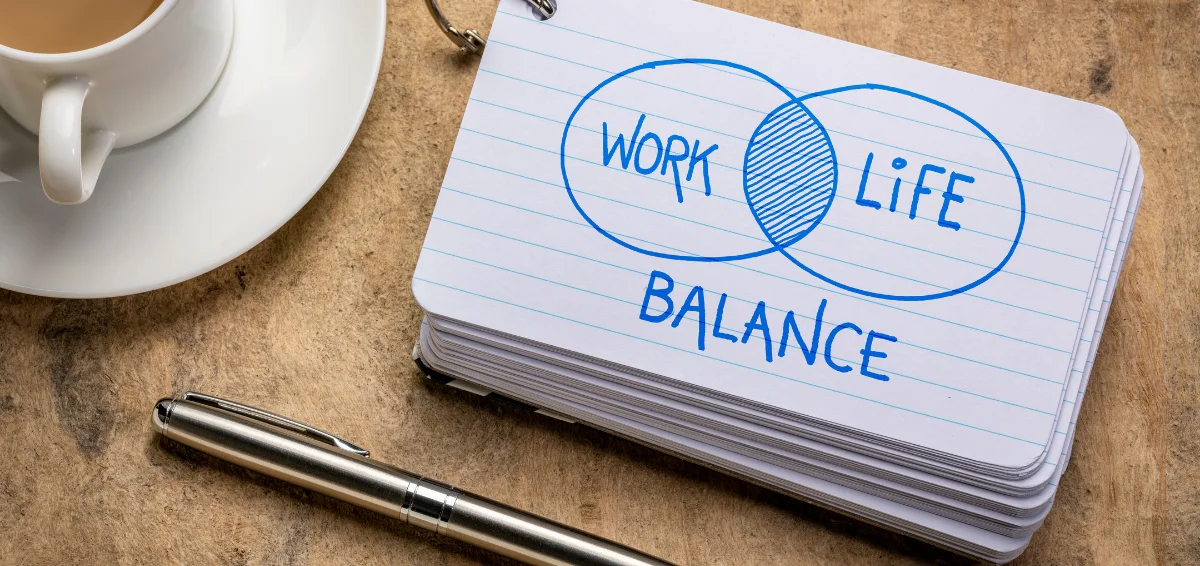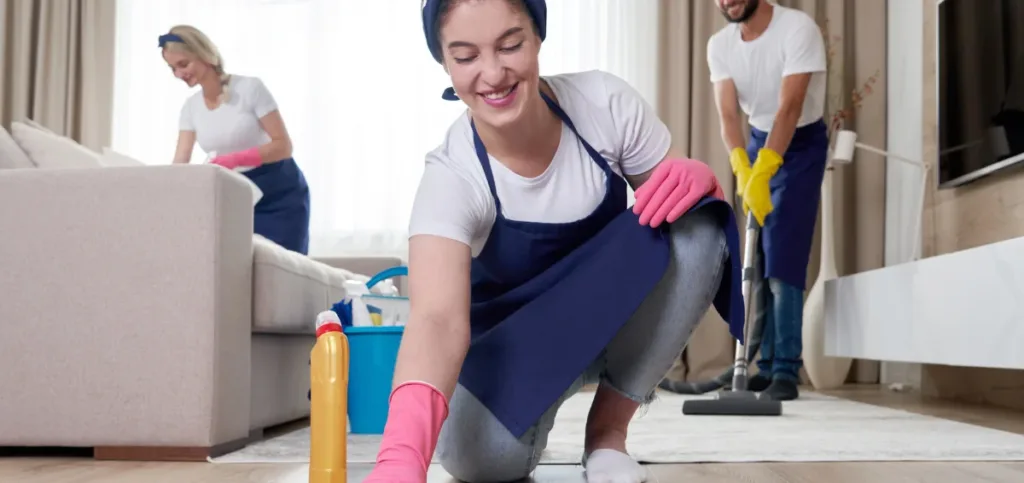
Are you thinking of starting your own cleaning business? One prerequisite to legally beginning your cleaning company is a business license. In the United States, every state needs a license to start and operate this business. Getting a license is key to smoothly operating, no matter how small or large your business is.
Typically, cleaning companies need a general business license to operate legally and a special license to comply with laws in their local area. Functioning without a license is deemed unlawful. Keep reading as we delve deep into all the licenses required to start a cleaning business and how to obtain them.
Also Read: Why is Foresight Not Getting Traction with Business?
Factors Affecting the Type of License You Need
By now, you know that you need a general license to start a cleaning business. However, the specific type of license that you need depends on the factors below.
- Your business location. Licensing laws of counties differ from those of states. Similarly, city license laws are different from those in states and counties.
- The type of business structure. Different business structures, such as proprietorship, LLC, and corporation, have different licensing needs.
- The business size. A big business with many employees has different licensing requirements than a small business.
- The kind of cleaning service offered. Different cleaning services require different types of licenses.
Types of Licenses Needed for a Cleaning Business
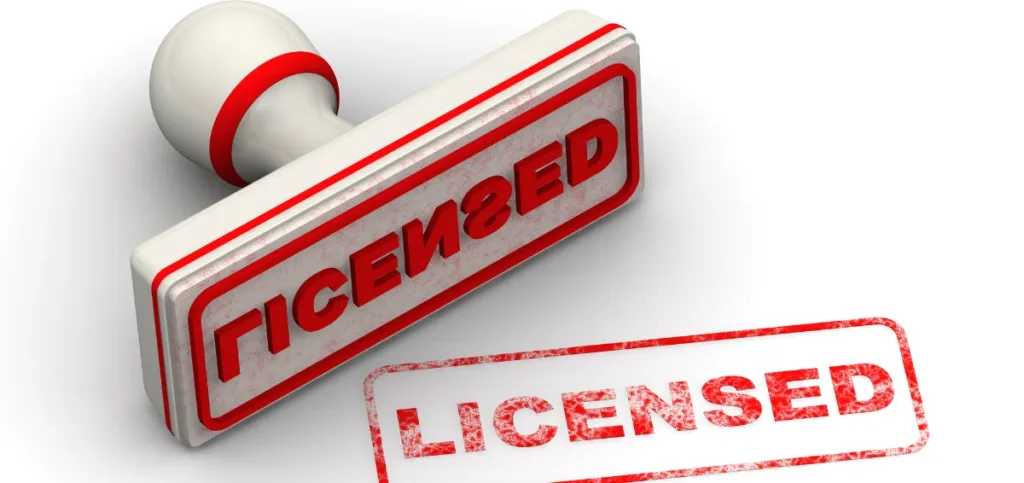
There are a few types of licenses needed to start a cleaning company. These have been explained below.
General Business License
The license, issued by the state’s Department of Revenue or local government, establishes the credibility of the business. It is needed for every business in the cleaning industry.
Vendor’s License
For businesses that sell cleaning supplies, a vendor’s license is important to manage sales tax on products. It is issued by the Department of Revenue or Taxation in a specific state.
DBA License
DBA stands for ‘doing business as.’ The license is needed if your business name is other than your legal name. The DBA license has dual functions. It protects customers from unlawful business practices and prohibits other businesses from using your name.
Specialised Licenses for Different Cleaning Businesses
Cleaning businesses can be of various types. Some examples include commercial cleaning, niche service cleaning, and house cleaning. Each of these needs a different type of license. Find out more about them below.
Service Contractor License
Contractors provide services to their clients but don’t work for them as employees. Those providing this type of service should get a service contractor license from their respective state. Visit the SBA website to find out details of the office in your state from which you can get this license.
House Cleaning License
This license is for businesses providing cleaning services to residential properties like homes and apartments. A house cleaning license is suitable for young businesses whose target customer base comprises individual homes.
Commercial Cleaning License
Businesses wanting to provide commercial cleaning services need a license for that specific purpose. This is mandatory to ensure that the business adheres to the best standards, as it uses sophisticated machines to perform its job. The license covers all the operations of the business and accounts for liability potential.
Janitorial License
The janitorial license covers various services. These include periodic maintenance and cleaning of commercial areas, requirements for waste disposal, and the use of chemicals.
Licenses for Niche Service Cleaning
Niche service cleaning includes the disposal of hazardous waste and the cleaning of medical facilities or crime scenes. The license is necessary to ensure compliance with stringent health, safety, and environmental regulations.
Insurance Options Available for Cleaning Businesses
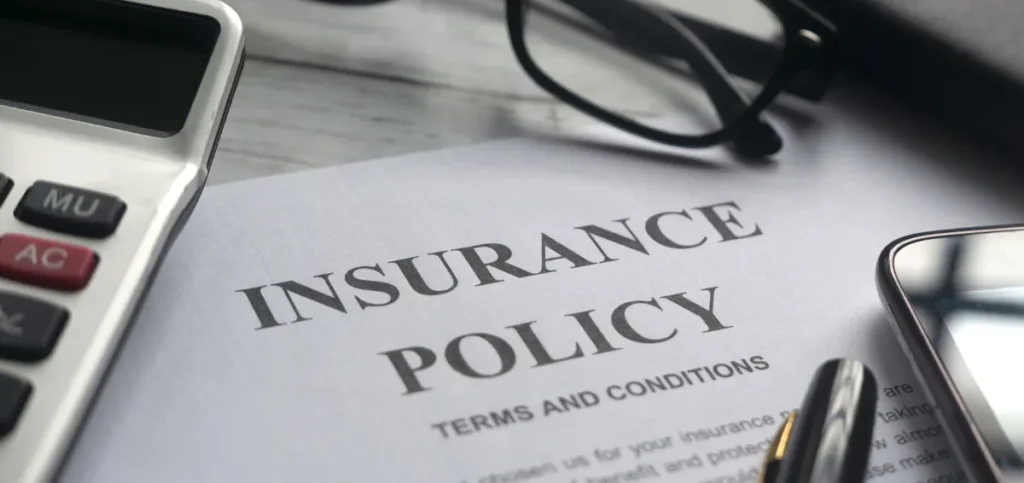
After obtaining the license, being insured is the next step in gaining the trust of your clients. Here are the insurance options available for cleaning businesses.
- General Liability Insurance: It is an essential prerequisite for every cleaning business. It safeguards against bodily injury or property damage that the business activities might cause.
- Workers’ Compensation Insurance: Businesses with employees need workers’ compensation insurance. It covers lost wages and medical expenses for employees who get sick while performing their jobs.
- Commercial property insurance: If your commercial cleaning business operates in a physical space or has specialised equipment, commercial property insurance is needed to protect it.
- Commercial Auto Insurance: This insurance is required for businesses that use vehicles for transport.
- Janitorial bonds: These are fidelity bonds. They protect the business against theft by its employees.
- Umbrella Insurance: It’s a liability insurance that extends the limits of your current liability policies.
Read Also: Sales Closing Techniques And Strategies
How to Obtain Your Cleaning Business License?
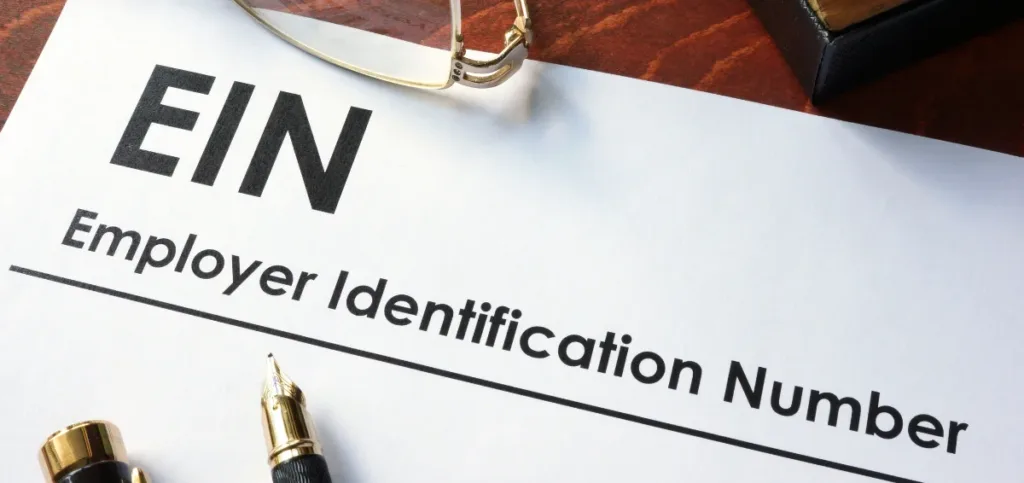
Acquiring a cleaning business license involves several steps. Although the specificities of obtaining the license can differ according to the state, here are the general steps involved:
- Head over to the official government website of your area to find out the specific licenses needed.
- Decide if you function as a partnership, sole proprietor, corporation, or LLC. All of them have different legal and tax requirements, which you need to be aware of.
- If your business name is different from your name, register it as a DBA.
- Find the business licensing office of your state, city, or county and apply for a general business license. This step also involves paying a specific fee.
- Apply for additional licenses and permits as per your specific cleaning business.
- It’s best to get bonded before operating. It will give your clients peace of mind as they will be protected from possible theft.
- Apply for an EIN (Employer Identification Number) through the IRS.
What is the Best Type of Cleaning Business to Start?
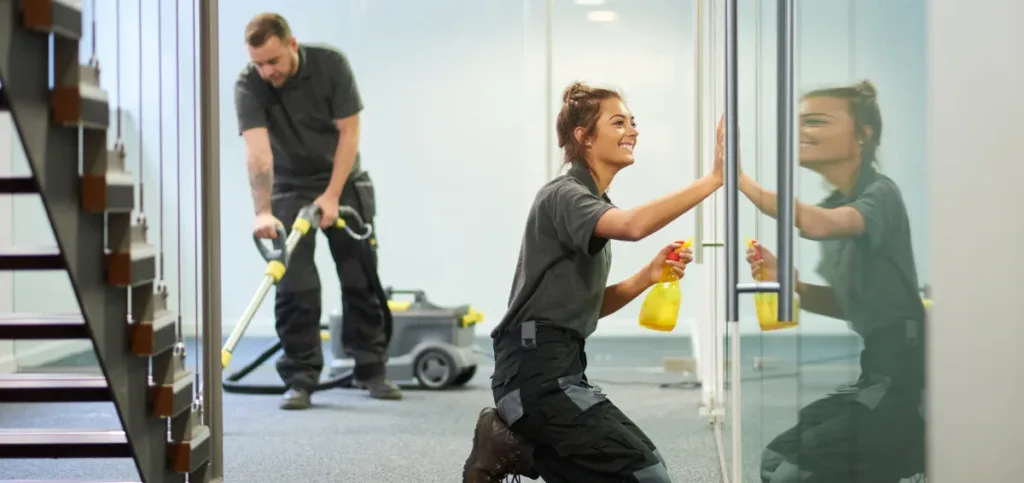
A cleaning business can turn out to be highly profitable. The secret lies in gaining an understanding of the most fitting and lucrative businesses in this industry. Here are five types of cleaning businesses that tend to make a lot of money.
Office Cleaning
Office cleaning involves activities like dusting, vacuuming, and cleaning bathrooms. It also involves keeping used work areas neat and tidy to improve the general hygiene of the space. This type of cleaning pays anywhere between $20 to $80 per hour.
Carpet Cleaning
This type of cleaning is done to refresh furniture upholstery, such as sofas, chairs, and even curtains. Carpet cleaning includes specialised cleaning services like dry cleaning and steam cleaning. On average, this service can pay you anywhere between $59 and $300.
Pool Cleaning
Pool cleaning involves inspecting and maintaining proper chemical balances in the water and general cleaning of the pool. It might also involve maintaining pumps. Pool cleaners can make around $50 to $60 per hour. This business has a low initial investment and profitable returns.
Shoe Cleaning and Restoration
Shoe cleaning services revive shoes that have become worn out. Professionals in this business earn around $15 to $25 per hour.
Computer cleaning
Computers are used by almost everyone daily. It is normal to find the accumulation of dirt and dust on their surfaces. Cleaning businesses with specialised equipment to clean different computer parts can easily make up to $45 to $50 per hour.
Concluding Words
A business license is a cornerstone of your legal operations. Without it, you cannot hope to operate at the level you desire. This article has made you familiar with the different types of licenses and the general application procedure. However, it’s best to consult relevant professionals, such as business consultants, to ensure you fulfil all regulatory and legal obligations.

